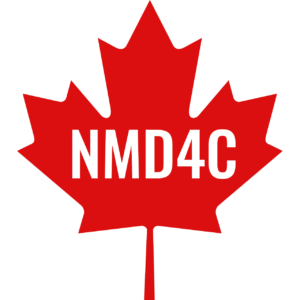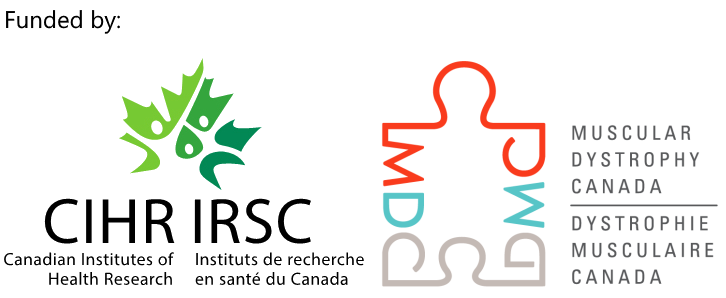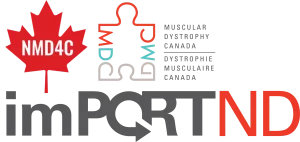Expert Patient Capacity Building
The NMD4C expert patient capacity building (EPCB) group in collaboration with MDC and a group of patient-partners are working to establish expert patient capacity building in the Canadian neuromuscular community. The EPCB team welcomed Patricia Mortenson in April 2021 to the role of project coordinator. The group pursued a landscaping exercise to gather the available resources for patient-oriented research (POR) and best practices, and has published a database to share this information. Working with patient partners and knowledge translation experts, the working group developed easy-to-use and accessible Canadian NMD patient training modules (imPORTND) to train both patient partners and researchers.
Patient Oriented Research Training – ImPORTND
The imPORTND platform offers online, self-directed, free training modules on how to conduct research that is informed by, and most meaningful to individuals living with neuromuscular disorders. The modules are designed for all members of the study team: including researchers, lab staff, and patient- and family partners.
Patient Oriented Research Resources
About these resources This collection of online resources and websites was sourced primarily from organizations and centres across Canada, but includes some from across the world. These resources are for all stakeholders engaged in patient oriented research (POR), including people affected by neuromuscular diseases, researchers, and advocates. Why are these resources important? Canadians with neuromuscular…
Patient-Oriented Research in Canada
Canada’s strategy for patient-oriented research (SPOR) puts ‘patients first’ by having patients, researchers, health-professionals, and decision makers work together in partnership to plan and conduct research (CIHR, 2015). With this approach, Canadians with NMD, their families, and advocates are increasingly asked to take an active role in research. Research and advocacy training empowers patients and ensures they have the confidence and knowledge needed to bring their expertise forward to guide discussions and inform decisions regarding health care, research, and therapy development with policy makers, industry and scientists. International RD advocacy organizations, such as EURORDIS (Rare Diseases Europe) provide highly effective training for families with RD via their ‘Open Academy’, but similar trainings providing Canadian and NMD context is lacking.
Ongoing Work
The group also provides opportunities for patient partners to engage in network research projects: Dr. Cynthia Gagnon’s comprehensive natural history of oculopharyngeal muscular dystrophy study, and will be included in an upcoming SMA decision-making project.



